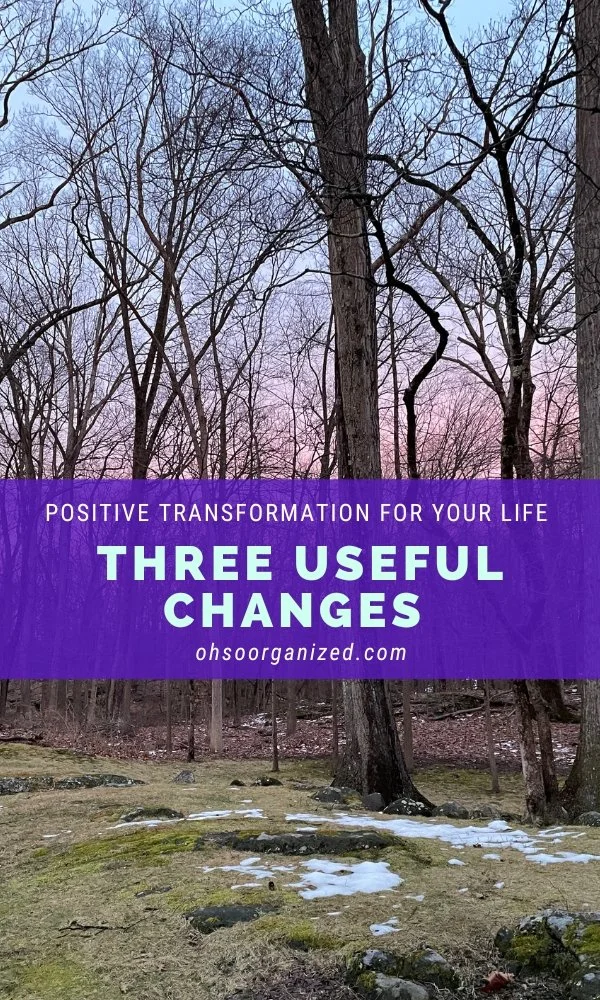Proactive change is a fascinating thing. It’s the type of change you seek when you desire a shift in your life. You might have identified an area you want to improve, a behavior you want to stop, or a wish you want to manifest. You are ready for a transformation but may feel overwhelmed with where to begin or what to focus on. Change is possible through desire, small steps, and support.
This week, I attended the educationally stimulating ICD Virtual Conference, “Shining a Spotlight on ADHD.” There were three terrific speakers- Melanie Sobocinski, PhD, PCC, Sharon Saline, Psy.D, and Ari Tuckman, PsyD, MBA. They shared a wealth of information. I’m focusing on three ideas I learned about change that I thought would be especially helpful.
3 Useful Changes
1. Task Activation
Have you ever wondered why a task isn’t happening? In Melanie Sobocinski’s presentation, Mastering the ADHD Trifecta to Manage Task Salience, she said the key to activation hinges on using strategies in three areas:
High Interest – May need to be boosted or toned down
Urgency – Can be overused, but can be beneficial when used in small doses
Other People – Can provide support, including focus and problem-solving, or can be an obstacle if it erodes the client’s autonomy
Task activation can be improved by understanding which elements are interfering. While Melanie shared excellent strategies for each area, there was one for High Interest that caught my attention.
To boost “Interest,” you can introduce novelty with a micro-change. Melanie shared a worksheet by Casey Dixon, PCC, who defines micro-change as “the smallest possible change you can make to have a task or solution feel new again.” These tiny changes will “catch your brain’s attention and help a task feel fresher and more rewarding, without creating utter chaos.”
Use Micro-Change to Introduce Novelty
Try a new tool or resource, such as a new app.
Change your location or placement of objects, like working at a coffee shop.
Select a new color for writing with or on.
Use a new sound for alarms.
Adjust your position or lighting by walking during a call or switching the lighting intensity.
2. Confidence Formation
Have you ever felt nervous, anxious, or lacked confidence in social situations? Are you curious about one strategy that can change your experience? In Sharon Saline’s presentation, Strategies and Solutions for Social Anxiety in Neurodivergent Adults, she described social anxiety disorder as a “debilitating fear or judgment, humiliation, or rejection.” There can be a “disconnect between how a person actually appears to others and their own exaggerated perception of themselves.”
Sharon delved into Rejection Sensitive Dysphoria (RSD), Perfectionism, and Imposter Syndrome. One of the strategies she offered when discussing Imposter Syndrome was to develop and name your “inner ally.” Negative self-talk can run rampant. Call upon your inner ally to provide support, compassion, and belief when you’re feeling nervous, doubtful, or ruminating with unhelpful thoughts. Sharon calls her ally “Tina Trailblazer.” What name will you give yours? What words of support will they offer?
While I haven’t named my ally or identified her as such, I have relied this year on my 2024 motto to lift me when I run into a challenge. Her voice says, “You got this.” Those words help me get over myself and move forward with confidence. After learning about the inner ally concept, I feel inspired to give my ally a name.
“Yes starts the process of change; Yet keeps it going.”
3. Sleep Foundation
Do you get enough sleep? Is that an area of your life you want to change and improve? Ari Tucker’s presentation was ADHD Makes Sleep Worse – And We Probably All Need More Sleep. He said, “No one is bringing their A-game after a bad night of sleep.”
Lack of sleep negatively impacts mood, efficiency, effectiveness, focus, and attention. Consider how you feel after good or bad sleep days. There are many solutions for sleep deprivation, which include establishing a consistent bedtime, limiting caffeine, minimizing kid and pet disruptions, or stopping naps. For more strategies, read Ari’s ADDitude article, 9 Sleep Deprivation Solutions for Adults with ADHD.
While there are numerous ways to address good sleep hygiene, Ari suggests focusing first on quantity. If you establish the ‘right’ number of sleep hours you need, the quality of your sleep will probably be fine. If the quantity of sleep is good and you’re still having sleep challenges, then it’s worth investigating your sleep quality. Talking with a doctor who can advise about any medical challenges affecting your sleep could be beneficial.
Small changes in your sleep habits can significantly improve your daily experience.
“Partial progress is still progress.”
Which ideas resonated with you? Are there areas of change you want to focus on? I’d love to hear your thoughts.
If you want guidance with the changes you desire, I’m here to help. Please email me at linda@ohsoorganized.com, call 914-271-5673, or click here to schedule a Discovery Call. Change is doable, especially with support.
















